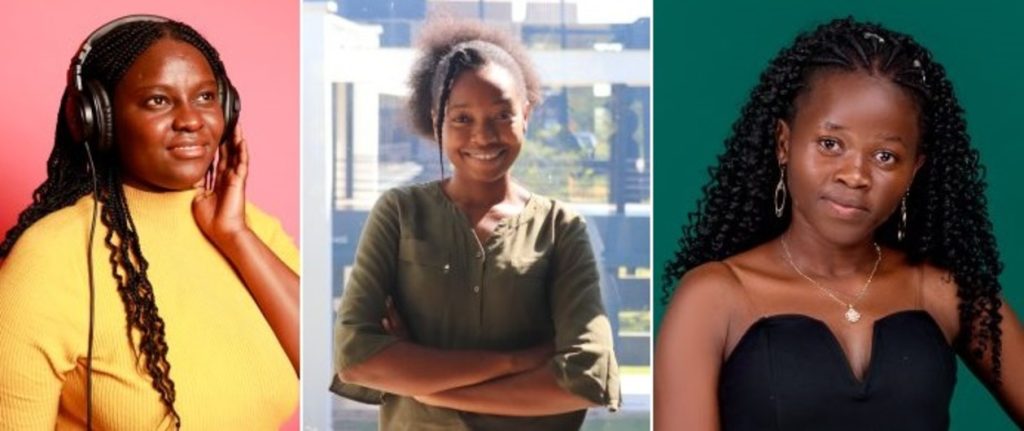Leaving no one behind: Invest in women
 08 March 2024
08 March 2024

Today is International Women’s Day – a day to honour the achievements of women globally, reflect on the challenges facing gender equality and call for further action to realise gender parity. This year’s focus ‘Invest in women: accelerate progress’ highlights the severe lack of financing for gender-equality measures, including those for sexual and reproductive health and rights (SRHR), and calls for more investment in women to transition to a more equal world. To ensure quality sexual and reproductive health services for everyone, particularly those most minoritised including women and youth, there needs to be sufficient funding and resources for our health systems.
To mark the moment, we interviewed three Make Way youth representatives Bertha Chulu (Zambia), Elizabeth Warindi (Kenya) and Vilda Atieno (Kenya) to hear what International Women’s Day means to them. We dived into discussing the need for gender equality to achieve SRHR, the importance of youth representation in gender equality and SRHR spaces, investing in gender equality and their call-to-action for governments to realise gender parity.
What does International Women’s Day mean to you?
Bertha:
“To me, International Women’s Day is a significant day to women. It is symbolic in that, on this day, we acknowledge the injustices that women faced and are still facing. Women’s day serves as a reminder of the work that we must do to uphold equality, eradicate harmful practices against women and girls and ensure that they lead a thriving life.”
Vilda:
“On this day, we also celebrate the different Shujaas [Swahili for brave or courageous] who have been in the struggle to lead the way giving us strength for continuity towards upholding our rights and equity.”
What is the link between gender equality and SRHR? Why is gender equality needed to achieve SRHR?
Warindi:
“Sexual and reproductive health and rights and gender equality are intrinsically linked. To achieve gender equality, access to sexual and reproductive health and rights services and information must be freely provided. Women and girls in underserved communities are denied their SRHR and therefore denied the power to make decisions about their bodies and reproduction. Women and girls bear most of the reproductive labour in the home that includes caregiving. Since women mostly do unpaid care work, it is therefore most important for them to have reproductive justice to make informed decisions on their reproductive and sexual health.”
Why do youth need to be represented and active in spaces for (advocating) gender equality and SRHR? What are your own experiences in these spaces?
Bertha:
“The United Nations reports that young people between the ages of 15 to 24 account for about 16% (approximately 1.2 billion) of the entire world population. With young people comprising such a large number of the population, it is a potential truth that gender inequalities being experienced are among this very population and in some cases, they could be contributing to this injustice. Involving young people bridges the gap between policy technocrats and the community. Youth engagement in advocacy around gender equality provides a platform for young people to integrate their unique perspectives on the matter that can be translated into policy.
When young people are engaged, they move from being beneficiaries to partners of development. Also, when young people are partners in development, they contribute significantly to the implementation of that policy. This experience improves the livelihood of young people as they propose solutions that work for them. It also builds their skills and capacity to effectively contribute to improving their sexual and reproductive health and rights outcomes.”
Vilda:
“I strongly believe that youth are the leaders of tomorrow to invoke the change we want in society. I hold myself accountable to the change we want. Through the Make Way programme, I have been able to start understanding the different challenges youth face in the community. In Kenya, youth voices are rarely heard on, for instance, budget issues because many lack interest in such discussions. After identifying this as the starting point to hold ourselves and governments accountable, today we mobilise young people and deliberately attend different public participation events. Through advocacy, we are reclaiming our spaces and openings to different opportunities.”
Warindi:
“The youth are the future. In Africa, especially where the median age is 19, there is a need to have youth in advocacy spaces for their voices to be heard on issues that are most pressing today such as reproductive justice, climate change and gender inequality. Youth are positive contributors to society and there is a need to co-create solutions with them. The inclusion of youth in these spaces allows them to own the solutions and positively contribute to creating and sustaining change in their communities. Youth are also the leaders of today and tomorrow. Nurturing the leadership talent for youth needs to start with inclusion in advocacy spaces to allow them space to learn, grow and thrive in these spaces.”
This year’s theme for International Women’s Day is #InvestInWomen. What is the importance of governments and donors continuing to invest in gender equality?
Bertha:
“Continued investment in women is important since this is the only way that development can be accelerated. Investing in women does not just benefit women, it benefits society at large. In Africa, they say when you educate a woman, you educate the whole village. In the same vein, when you invest in a woman, you invest in the whole village. Investing in women leads to a reduction in inequalities, improved systems of development and an abatement in poverty.”
Celebrating a more just world
As we mark International Women’s Day, let’s celebrate the women past and present while rededicating ourselves to the struggle of gender equity. By empowering women, we empower humanity as a whole, creating a more just and intersectional world. Together, the Make Way youth panellists call on governments and donors to invest in women and girls to ensure their continued access to sexual and reproductive health and rights!



